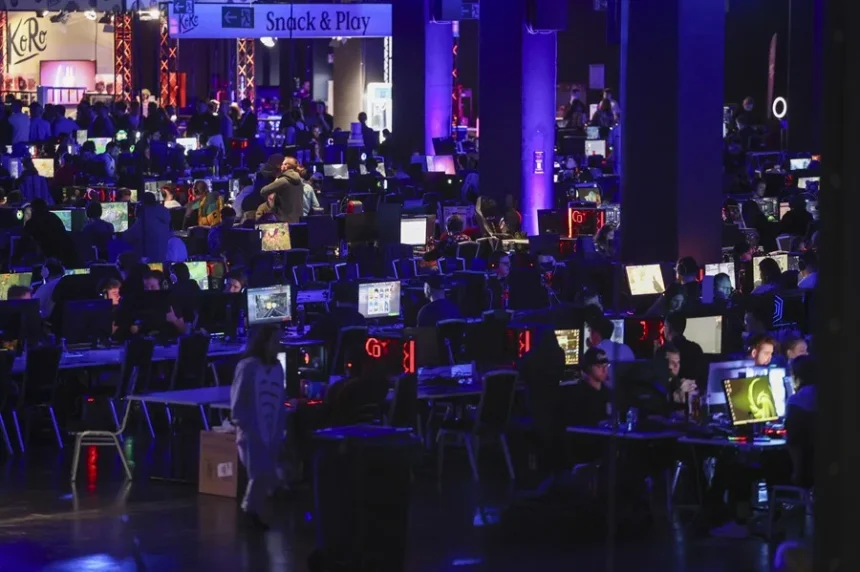Cologne, Germany, once again becomes the epicenter of the gaming universe with the official opening of Gamescom, the most important video game fair globally. This year, the event promises to exceed all expectations, with record participation and an unprecedented display.
This year’s edition features over 1,500 exhibitors from 72 different countries. The arrival of more than 300,000 visitors is expected, surpassing the 335,000 figure from the previous year. The fair occupies a space of 233,000 square meters distributed in 40 pavilions, including representations from countries such as Spain, Chile, and Brazil. The presentation of products will be carried out both in person and online.
During the opening ceremony, thousands of fans were able to enjoy previews of anticipated games such as ‘Call of Duty – Black Ops 7’, ‘World of Warcraft – Midnight’, ‘Bloodlines 2’ and ‘Requiem’.
On Wednesday, the fair was reserved for industry professionals. Starting Thursday, the general public will have the opportunity to try games that will be released in the coming months, including the anticipated sequel to ‘Silksong’.
A highlight will be the cosplay competition sponsored by Google, whose winners will be announced next Friday.
Attendees will also be able to participate in esports tournaments, meet industry personalities, and enjoy musical performances in the center of Cologne.
Among the countries joining Gamescom this year are Argentina, Dubai (United Arab Emirates), Japan (with Nintendo), Kyrgyzstan, Qatar, and Thailand, which acts as the guest country. The fair will run until August 24.
Thailand seeks to position itself as an attractive destination for video game development, highlighting its importance as one of the fastest-growing markets in Asia.
The German Video Game Sector and Public Funding
Despite the success of the fair, the video game sector in Germany faces challenges and awaits the increase in public aid promised by the Minister of Research, Dorothee Bär, who visited the exhibition.
It is expected that in 2025, 88 million euros from public funds will be allocated, instead of the 50 million from previous years, to boost the sector through tax incentives. By 2026, the investment could rise to 125 million euros.
After the boom during the pandemic, the sector’s billing decreased by 6% in 2024. However, with approximately 9.4 billion euros, Germany remains the largest market in Europe and the fifth worldwide.